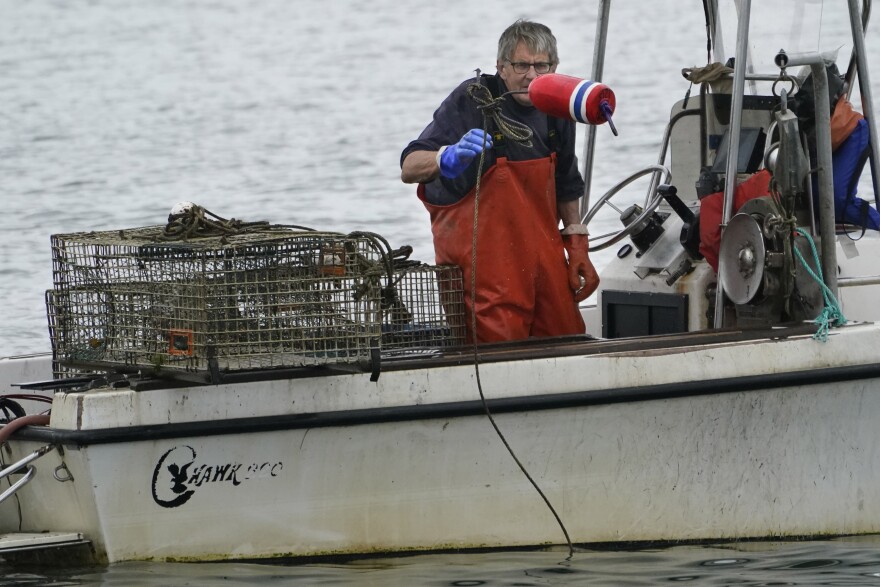Federal fisheries officials are proposing a special permit to allow up to 100 New England lobster and crab boats to use experimental high-tech systems to retrieve their traps. That would mark a big expansion in the development of fishing systems that could help protect endangered North Atlantic right whales.
The technology uses remote-control systems to locate and trigger traps or buoy lines to the surface, reducing the use of vertical rope lines that can entangle the right whales.
Henry Milliken supervises a prototyping program for the so-called "ropeless" gear at the Northeast Marine Fisheries Science Center in Woods Hole.
"Our goal is to work with the fishermen, get them experienced with the gear outside of the closed areas, outside of the times when the right whales are present, and then when everyone is experienced, everyone is comfortable, then permit them to fish in the closed areas," Milliken says.
Most Maine fishermen dismiss the technology as unworkable in the state's diverse fishing grounds. But a handful are quietly trying it out. Milliken says the industry's participation in engineering usable, cost-effective systems will be vital for their success. He says his agency's budget for procuring prototype systems to lend to fishermen is being supplemented by contributions from conservation groups, but it will take time to finance all the systems the new permit would allow. The deadline for public comment on the proposal is June 16.


